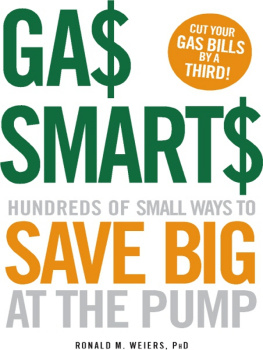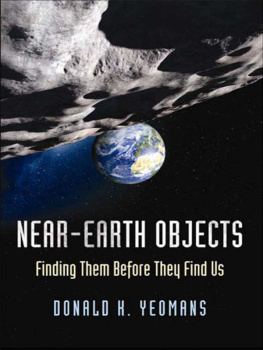Compelling and provocative.... Should be required reading for all who care about the future of this country and the planet as a whole.
The Nation
This book is journalism of a high order, unraveling the spin as it leads the reader effortlessly through political and military labyrinths.
The Sunday Times
[A] very readable account... a superb introduction to these issues.
The Christian Science Monitor
Yeoman does a fine job integrating a wide array of information, from the mechanics of oil production to how the politics of oil helped shape the modern Middle East.... Surprisingly nuanced.
Newsday
An informed primer that weaves together commentary, anecdote, and fact. Wired
Oil
Oil
Anatomy of an Industry
MATTHEW YEOMANS

THE NEW PRESS
NEW YORK
LONDON
Text 2004 by Matthew Yeomans
Afterword 2005 by Matthew Yeomans
All rights reserved.
No part of this book may be reproduced, in any form, without written permission from the publisher.
Published in the United States by The New Press, New York, 2004
Distributed by W. W. Norton & Company, Inc., New York
LIBRARY OF CONGRESS CATALOGING-IN-PUBLICATION DATA
Yeomans, Matthew.
Oil: anatomy of an industry / Matthew Yeomans.
p. cm.
Includes index.
ISBN 978-1-5955-8855-5
1. Petroleum industry and trade. I. Title.
HD9560.5.Y46 2004
338.2'7282dc22 2004040151
The New Press was established in 1990 as a not-for-profit alternative to the large, commercial publishing houses currently dominating the book publishing industry.
The New Press operates in the public interest rather than for private gain, and is committed to publishing, in innovative ways, works of educational, cultural, and community value that are often deemed insufficiently profitable.
www.thenewpress.com
Illustrations by Scott Lizama
Composition by NK Graphics
2 4 6 8 10 9 7 5 3 1
For Jowa and Dylan
Energy...
Sometimes I think Im runnin out of energy
Seems like we use an awful lot for
Heatin and lightin and drivin
Readin and writin and jivin
Energy... Youd think wed be savin it up.
The Energy Blues
Schoolhouse Rock, 1973
Contents
From the moment we wake in the morning to the moment we go to sleep, oil controls our lives. Its influence reaches far into politics, international affairs, global economies, human rights, and the environmental health of our planet.
The most obvious way that oil dominates us, of course, is transportation. Oil powers 97 percent of Americas transportation needs and over half the oil we consume daily goes to keeping our cars and trucks on the road. Thats one barrel out of every seven used in the world. Not surprisingly, the United States has more automobiles than any other country; in fact, it has more cars and trucks than it has people.
But oil is far more important to modern society than simply as fuel for our automobiles and airplanes. Oil provides heat in the winter for millions of American homes, and it accounts for 40 percent of our total energy needs. Without oil there would be no plastics, nor many of the chemical-based medicines we take for granted. Perhaps most important, America would go hungry without oil: commercial agriculture would grind to a halt without oil to run farm and food processing machinery or to make fertilizers, herbicides, and pesticides.
To better understand oils impact on our lives, I devised a little experiment. I would spend a day without oil. How hard could that be? After all, I live in Brooklyn so Id already won half the battle; Id leave the car on the street and hope I didnt pick up a parking ticket.
I began in the bathroom. Id have to carry off the rough-and-ready look this morning as petroleum products play a role in my shampoo, shaving cream, and deodorant. There was also going to be a lot of water to clear upmy plastic shower curtain is also an oil product.
Brushing my teeth became a far less appealing experience without the benefit of toothpaste, whose ingredients include petrochemical-enhanced artificial coloring and mineral oils. (But at least I still had my own teeth. If Id worn petroleum-based dentures, Id be gumming my way through this particular day.)
As it was, I was going to have to make do with only limited vision as both my contact lenses and plastic-lens eyeglasses came from petrochemicals. And Id have to skip putting on lip balm; thats petroleum oil. Worse still, Id have to dress my six-month-old son in cloth diapers instead of the normal disposable ones. (What a day to have made the switch to solid food!)
Next came the problem of what to wear. Typically, I live in sneakers but not todayI had to search out an old pair of nonrubber-soled leather shoes. It was raining outside but I had to forgo any waterproof outerwear. Goretex, it turns out, is yet another genius invention of the petrochemical industry.
I left my house and immediately encountered another problem. All New York streets are paved with asphalt, the sticky by-product that remains after refining crude oil to extract its more lucrative properties, like gasoline and heating oil. Lacking powers of levitation, and with not an inch of grass in sight, I had to admit defeat on this point. I traipsed slightly forlorn to my neighborhood caf for breakfast. Eggs and coffee came courtesy of a nonstick pan and a heat-resistant glass potproducts of the petrochemical industry. Defeated again. At least I could pay in cash. All credit and debit cards are oil products.
On my return home, I realized this wasnt going to be the most productive day of my working life because I couldnt use the computer or telephone, both of which are housed in plastic. Neither could I kick back and listen to music or watch a movieCDs and DVDs also contain oil. Perhaps then I could just go and play a round of golf? Stuck again: golf balls contain polybutadiene, another petrochemical.
The list of off-limit items continued. Bandages, blenders, garbage bags, glue, pacemakers, and pantyhose (the latter two not being items I needed on this particular day) all got their start as oil. This whole day-without-oil thing was beginning to give me a headache. Perhaps I should just take a few aspirin and forget about the whole thing. You guessed it: Aspirin is another proud legacy of oil.
* * *
No nation uses more oil than the United States. The U.S. uses a full quarter of all the oil produced in the world. And even though it produces nearly eight million barrels of oil a day, it must import a further twelve million barrels just to meet its daily needs. Yet despite this amazing discrepancy, we still take oil for granted.
How could it be that a people whose way of life is so dependent on oil could be so naive about how we use it? The more I thought about it, the more I began to realize that Americas oil addiction runs deeper than a love for big cars and the open road.
Oil, I believe, has etched an indelible yet invisible mark on the modern American psyche. After all, America is the birthplace of the oil industry. Cheap, plentiful supplies of U.S. oil propelled the United States to victory in two world wars. Oil fed the postWorld War II consumer boom that established a consumption-crazy middle class. And the oil industry helped spawn another industrial giant, the automobile industry. At every step of the way, oil has provided a blueprint for modern American life that the rest of the world eagerly copied. Americans, for their part, have embraced the spirit of self-confidence and invincibility that grew from knowing they controlled their own oil destiny. And that spirit continues today, even though America has long depended on others for oil.
Next page





